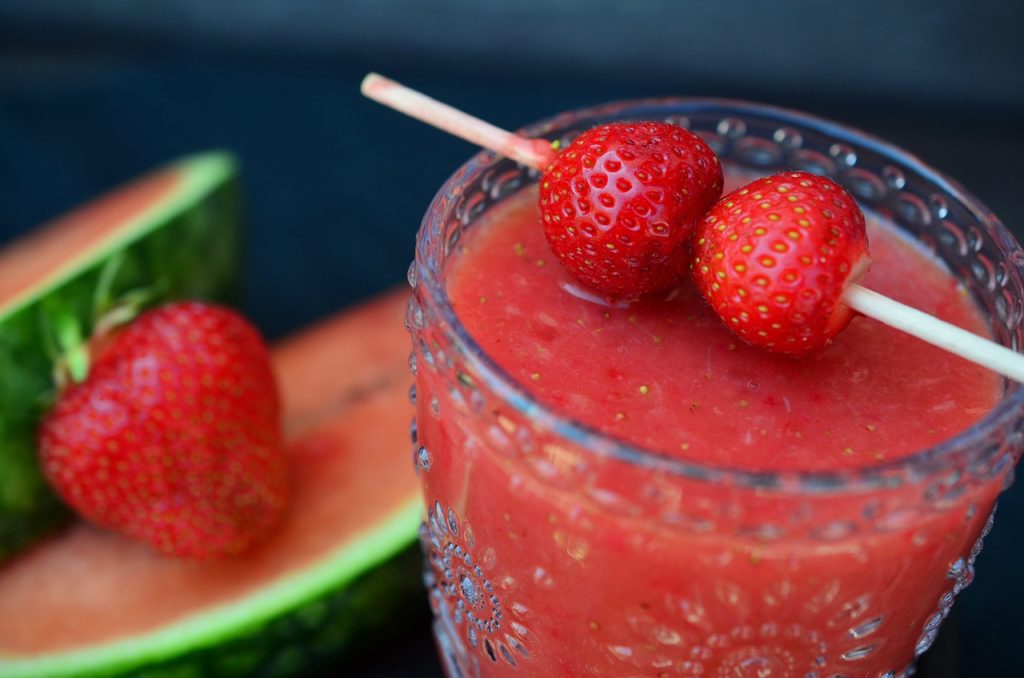10 Common food mistakes

We all try our best to eat well (i.e. healthy) most of the time, but did you know there are some common mistakes that most of us are making? I know I fell for the first one!
Read on – these are easy to fix mistakes so don’t beat yourself up!
1 – Eating whole flaxseeds/ linseeds.
These little beauties are filled with omega-3 fats, fibre and antioxidants, which are great for heart health. However, eaten whole, they may pass through the intestines undigested, meaning you miss out on the health benefits inside the seed.
Solution: Buy ground flax seeds instead, or put them in a coffee or spice grinder.
2 – You blend a nutritious smoothie, but it’s a calorie bomb

You’ve picked a great combination of superfoods to put into your blender. Blueberries, cashew butter, chia, kale, bananas and coconut milk sound like a fabulous breakfast drink but beware! These concoctions can quickly become calorie bombs.
Solution: Aim for a 300 cal smoothies by serving smaller portions (about 250ml), using more vegetables than fruit, and go easy on the high-calorie nuts and seeds.
3 – You take your supplements with coffee
Caffeine from coffee (and tea and cola) can impede your body’s ability to absorb some of the vitamins and minerals in your supplements, including calcium, iron, B-vitamins and vitamin D.
Solution: Enjoy your coffee about an hour before taking your supplements, and swallow pills with water instead.
4 – You use regular tinned beans for your meatless meals
Beans are an fantastic source of fibre and protein, but tinned varieties may have close to 1,000 mg of sodium (salt!) per cup – that’s two-thirds of what you need in an entire day.
Solution: Buy “no-salt added” or “low sodium” varieties. If you can’t find them, drain and rinse your canned beans, which will eliminate about 40 per cent of the sodium.
5 – You’re cutting out fruit in order to cut back on sugar
For most people, sweet drinks, baked goods and sweets (chocolate incl) are the main source of sugar, not fruit. Whilst there are no beneficial nutrients in soft drinks and cakes, fruit has fibre, vitamins and protective antioxidants. Plus, we don’t tend to overeat fruit, but do tend to drink too much soft drink. Try eating 6 banana in one sitting vs downing a 600mL soft drink. Both pack 16 teaspoons of sugar.
Solution: Choose fruit and skip the junk food.
6 – You trust claims like ‘low-fat’ and ‘sugar-free’
We have come to rely on labels that tell us what our food doesn’t contain – fat, sugar, gluten. But, you also need to consider what the food does contain. Ultra-processed foods may be fat-free or sugar-free, but also loaded with preservatives or refined ingredients.
Solution – Read ingredient lists and choose foods that are as close to nature as possible.
Click here to read more about food labels
7 – You drink almond milk for calcium but don’t shake the carton first
Milk alternatives made from soy, almonds, cashews, rice, etc. are often fortified with calcium and vitamin D. But the added nutrients don’t stay in the liquid very well, and tend to sink to the bottom of the container. If you drink without shaking first, you can’t reap the benefits of the added vitamins and minerals.
Solution: Shake well before serving.
8 – You eat salad without the dressing
Vegetables contain fat-soluble vitamins A, E and K, and a various antioxidants that need fat to be absorbed. If you skip the oil and vinegar, you miss out on key nutrients from the salad.
Solution: Use oil-based dressing, nuts, seeds or avocado to dramatically boost your body’s ability to soak up the veggies’ beneficial nutrients (skip the mayo and creamy dressings though)
9 – You miss out on probiotics by buying the wrong type of yoghurt
Fermented foods such as yoghurt contain probiotics. But unfortunately not all yoghurts are pro-biotic rich. If yoghurt has been heated or pasteurised, probiotics are destroyed and may not be added back in.
Solution: Look for the words “live active cultures,” or check ingredient lists for names of specific probiotics (lactobacillus acidophilus, L bulgaricus, etc.) to ensure you’re getting these beneficial bacteria, which aid digestion and support the immune system.
10 – You refuel with sports drinks
Sports drinks are meant to replace fluid and electrolytes that are lost when you sweat excessively, and are suitable after endurance sports like a soccer game or marathon. But the extra sugar and salt in sports drinks are not needed for casual exercise with minimal perspiration.
Solution: water is the best choice.
